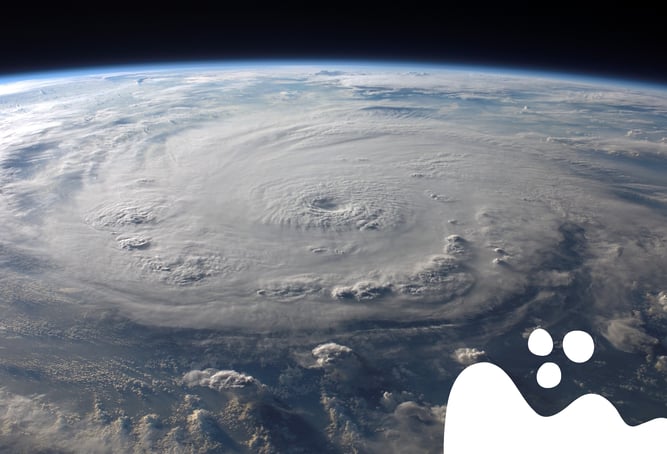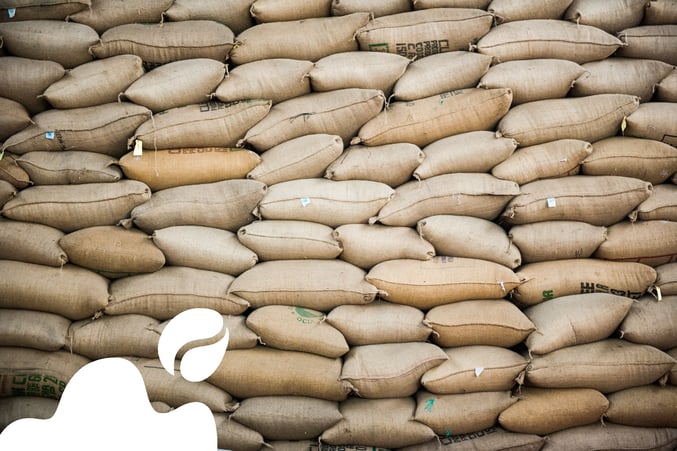
Heavy rains, stronger winds ... yes, hurricane season is here in much of the world. But we are also starting to feel the effects of "La Niña"—the atmospheric phenomenon that is the colder cousin of El Niño—that will reach the Northern Hemisphere during the upcoming fall or winter season. This would not only bring along some colder months, but also could present a few additional logistical issues. To find out more about these potential challenges, we talked to Cora Coronel, Sustainable Harvest’s Certifications Manager & Coffee Operations Specialist, about how the weather pattern could affect shipments—and much more.
________________________________________________
First, let’s learn a bit more about La Niña as a weather phenomenon. According to the United States’ National Oceanic and Atmospheric Administration (NOAA), during La Niña events, winter temperatures are colder in the north and warmer than usual in the south. So what causes La Niña? The phenomenon comes from trade winds being stronger than usual, pushing warm water toward Asia and colder water to the Americas. As a result, cold waters in the Pacific force the jet stream toward the north, which can lead to droughts in the southern United States and cause heavy rains and flooding in the Pacific Northwest and Canada. The phenomenon can also cause hurricane seasons to be more severe.
So how will La Niña potentially affect the logistics of bringing coffee to our customers?
- Shipments may be delayed
If origin countries are affected by these weather events, it’s possible that ships will not be able to leave ports safely, or that we’ll see them taking different, sometimes longer routes. They’ll have to take these measures due to low visibility, storms, tides, or sea levels being high, which not only are a risk for a ship’s crew, but also for the containers on the ship, as they can sometimes fall into the ocean, get flooded, or get wet. If that’s the case, our containers will need to be inspected at the next port to make sure the coffees are not affected.
- Shipments get to ports, but not in the best condition
In the case that everything goes well from the origin port to the ship’s destination, there can still be delays in removing the containers from the ship due to restricted work hours or a shortage of labor. There can also be issues with transporting the coffee to warehouses—or from warehouses to roasteries—due to fog, low visibility, flooding, ice, or snow, causing dangerous roads and resulting delays.
- What happens if containers are damaged?
All of our shipments are insured, and we work closely with a marine insurance company to track every one of our shipments. If there are any issues, our Logistics team provides a serial number to the insurance company, which tracks each shipment or container. Let’s say, for example, that a container gets flooded or wet in transit. Because the insurance company has staff in every port where we work, we can ask them to check the container in transshipment, when the ship stops at a port before reaching the final destination. During this check, they can examine the coffee, send us photos and a report, and then we can decide—depending on how much damage we see—whether to open a claim or carry on with our shipment as is.

A few suggestions for roasters
The realities of the climate crisis are impossible to ignore: Hurricanes, floods, and heavy rains are getting stronger and more constant, as are unstable temperatures. We see frosts and snows where this weather didn’t used to occur, and higher temperatures where weather used to be friendlier.
With climate change upon us, we need to start looking for ways to mitigate or minimize the impact of climate change now—because when coffee is at risk, our industry is at risk. So before any suggestions, I’d like to ask you to look for ways to implement change in your business to help minimize the impact of climate change. We are all in this together, and we all need to do our part. Weather patterns like La Niña are not new, but their impact is more significant over time. Whether it affects us and our businesses directly or indirectly, it does impact our industry.
That said, what can we do in the next few months to prepare for the effects of La Niña?
- As you probably remember, in the early stages of the COVID-19 pandemic, people started buying considerable amounts of toilet paper in preparation for a potential shortage. Well, we may need to do the same with coffee in the coming months and start increasing our stock. We can’t tell if all shipping routes will be operating as usual in the next few months, and we need to be prepared. We suggest increasing your orders and having a good stock of coffee in case things slow down and coffee takes longer to get to the U.S.
- Invest in coffees of different qualities. I don’t mean “buy low-quality coffee,” but investing in an 82-83 with a clean cup is not a bad strategy. Those coffees may not give you or your customers the same “wow factor” as other options, but it’s good to have some coffees as a reserve, in case some of those crazy-good coffees take a bit longer to get to you.
- Place your orders on time—don’t wait until the last minute, or until you only have a couple of bags left to order more coffee.
- Please be patient. It’s getting more complicated to give accurate estimated times of arrival. We will always keep you updated and provide you with our best guess, but it may take longer than usual for coffee to get to the U.S. Routes are getting longer, and the price of containers is getting higher. We are doing our best to get all shipments on time, but unfortunately, some things are not under our control.
________________________________________________
Make sure to subscribe to our blog to stay updated on the changing situation. As always, if you have any questions, please reach out to us! And for more on La Niña, you can follow these updates from NOAA.



.png)
